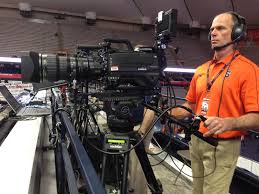Sports analysis and broadcasting are two very important components that should be included in any sports management curriculum. It is obvious that the job requirements for a sports broadcast reporter or analyst are very different from those required of a sports analyst. But just because it’s a slightly different job description does not mean that you have to give up on the important skills that make you an excellent sports broadcasting employee.
 There are many aspects to sports broadcasting that make it distinct from sports reporting. In fact, sports coverage, especially on the sports radio shows and during certain sports telecasts, is one of the few occupations where the skills learned in a sports journalism degree can transfer over to a career in sports broadcasting. The reporting and analysis skills you will acquire from a college degree in sports reporting will translate very well to the world of sports broadcasting. A sports analysis and broadcasting degree program will teach you how to become a professional sportscaster. You will learn how to utilize broadcast technology to your advantage and develop the ability to interpret and critique current events.
There are many aspects to sports broadcasting that make it distinct from sports reporting. In fact, sports coverage, especially on the sports radio shows and during certain sports telecasts, is one of the few occupations where the skills learned in a sports journalism degree can transfer over to a career in sports broadcasting. The reporting and analysis skills you will acquire from a college degree in sports reporting will translate very well to the world of sports broadcasting. A sports analysis and broadcasting degree program will teach you how to become a professional sportscaster. You will learn how to utilize broadcast technology to your advantage and develop the ability to interpret and critique current events.
A good sports broadcasting program or school will teach you how to become an excellent studio host, reporter, analyst, play-by-play announcer, sideline reporter, and television personality. In addition to having the skills and knowledge necessary to succeed at one of these various positions, you will also need to possess excellent people skills and a wide range of communication skills. Being able to get along with people both on the air and off the air is extremely important. Many successful sports broadcast correspondents and analysts grew up in small towns or in small apartments. Being able to understand the personalities and styles of local people is an invaluable skill for people in sports broadcasting.

